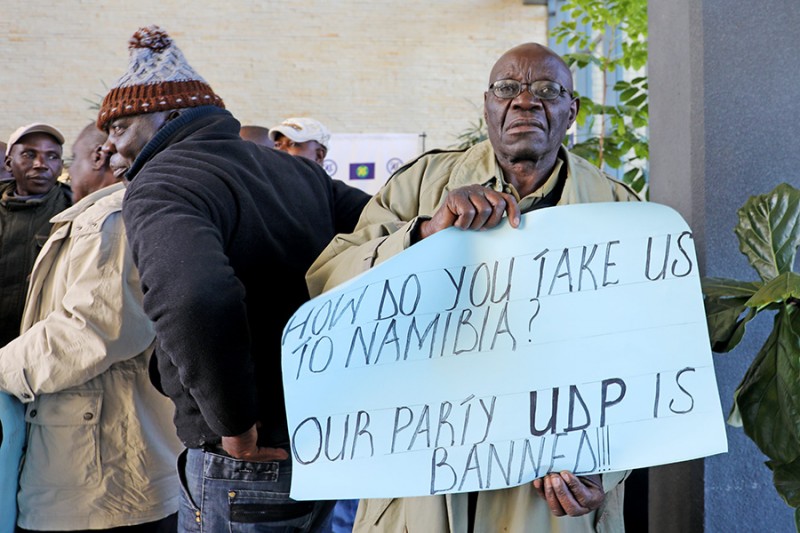Showdown at Dukwi as 1,000 'Caprivians' face deportation
Mbongeni Mguni | Friday September 6, 2019 12:20


Yesterday, defence, justice and security ministry director, Thobo Lethage, immigration and UNHCR officials asked the refugees to congregate at the Dukwi community hall this morning (Friday) to register their property and board vehicles for deportation.
The refugees, the remnant of an initial group of about 3,000 who fled secessionist violence in Namibia’s Caprivi Strip in 1998, lost a Court of Appeal case last month against their removal and deportation back to Namibia. The ‘Caprivians’ were fighting for the secession of the Caprivi Strip from Namibia, which they claim is part of an agreement made by liberation parties before Namibia’s independence.
The group’s unofficial leader, Felix Kakula told Mmegi their position on a return to Namibia without political assurances from that country, was unchanged. “We told them this morning that the facts are that we will not be safe in Namibia because we belong to a party that was banned. “We told them that you can take what is there but we will not surrender.
“The UNHCR said they were stopping the rations because we are now illegal immigrants.
“If no response has been received from Namibia on the status of our party, we cannot surrender because Namibia will be more like hell.
“Our people have been in prison there since 1999 for treason.”
From the initial group housed at Dukwi, the majority crossed back to Namibia, while those remaining say they face prosecution or reprisals from authorities in that country for their role in the 1998-1999 conflict. The Caprivi treason trial at one point involved 132 suspects and 278 charges.
The governments of Namibia and Botswana, as well as the UNHCR argue that the conflict has long been over, a position vindicated by the CoA judgement. In 2015, Namibia offered the refugees grants of $300 for adults and $200 for children, as well as three months’ food provision, building materials and speedy identity document processing, if they returned home.
However, the Namibians at Dukwi have argued that the overtures are a ruse to imprison their leaders. They point to the alleged arrest and imprisonment of some former ‘Caprivians’ who voluntarily returned to Namibia some years ago. A ‘Go See, Come Tell’ mission led by UNHCR and featuring some refugees from Dukwi ended abruptly after political tensions exploded in Namibia, leading to local officials beating a hasty retreat.
At the time, Namibian officials singled out Kakula as ‘poisoning’ the other refugees against voluntary repatriation.
In court papers, Namibia’s then Namibian minister of Home Affairs and Immigration Pendukeni Livula-Ithana claimed Kakula “was holding his fellow refugees hostage, denying them an opportunity to return because he himself feared prosecution for crimes he had committed”.
“Namibia is a democratic country governed in terms of its constitution and the law. Secessionism is a crime in almost every country. Those who participated in this act of violence would obviously stand to be prosecuted,” the minister said at the time.
Mishake Muyongo, the leader of the Caprivian party banned by Namibia, pleaded with the Botswana government not to deport the refugees. Muyongo is a one-time Dukwi refugee who was later exiled to Denmark, where he still lives.
“Botswana has a strong historical, cultural and blood related bond with the Caprivians,” he said.
“We fought historical wars together as one people at times of crisis.
“Caprivians walked barefoot from Caprivi Strip to Kasane and Maun points to pay taxes. There existed no border, as it was just one country colonised together by the British.
“One can choose a friend, but you cannot choose a neighbour.
“Botswana should not bloody their country with the Caprivians’ blood for the pseudo political friendship with Namibia.”
Ministry officials were not available at press time. However, in previous interviews, government has stressed that Namibia has given assurances of safety for the returning refugees.
